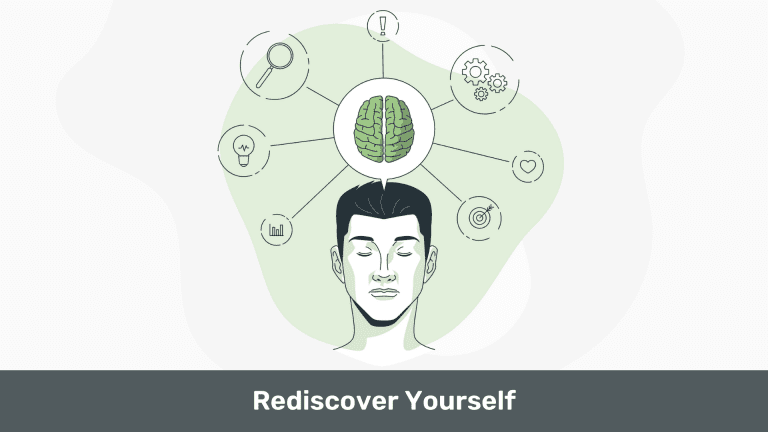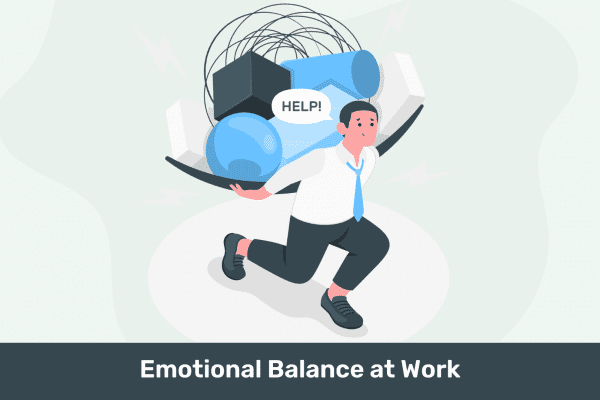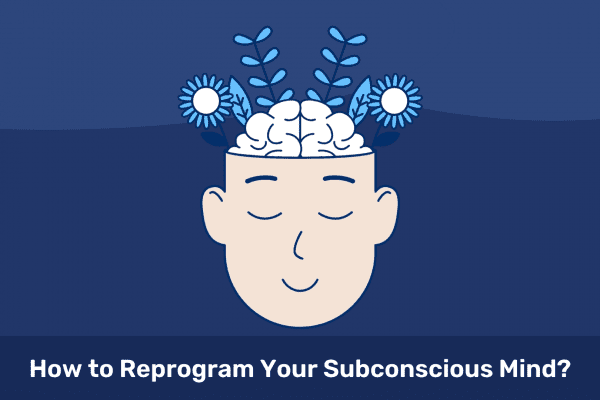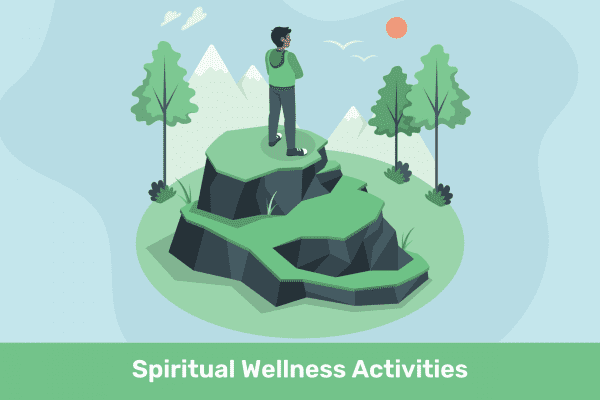Introduction
In the relentless hustle of modern life, it is not uncommon for individuals to feel adrift, uncertain of their identity and purpose. The fast-paced nature of society, coupled with myriad external pressures, often leaves us disconnected from our true selves. In such moments of self-doubt and confusion, the imperative to “Rediscover Yourself” becomes not just a suggestion but a vital pursuit for personal growth and fulfillment.
According to a study conducted by the World Health Organization (WHO), an increasing number of individuals worldwide report feelings of anxiety and identity crisis, particularly in the face of rapid societal changes and global uncertainties. Recognizing the need for self-renewal is the first step towards a more meaningful and authentic existence.
Recent psychological research, as highlighted in the American Psychological Association’s (APA) Journal of Personality and Social Psychology, underscores the significance of identity exploration in fostering resilience and overall well-being. The human psyche is malleable, and individuals possess the inherent capacity to evolve and redefine themselves.
This comprehensive article will offer actionable insights and practical strategies to help individuals reconnect with their core identity. From introspective exercises to immersive experiences, each suggestion is carefully curated to catalyze the process of self-rediscovery.
As we embark on this journey together, let us acknowledge the transformative power that lies within each individual. By embracing the challenge to rediscover oneself, we open the door to a richer, more authentic life—one where clarity of purpose and self-awareness illuminate the path ahead.
What does it mean to Rediscover Yourself?
Rediscovering yourself is a process of self-exploration and introspection aimed at gaining a deeper understanding of who you are, what you value, and what brings you fulfillment. It involves breaking free from external expectations, societal norms, and personal limitations to connect with your authentic self. This journey often requires reflection on your beliefs, passions, strengths, and weaknesses.
The need to rediscover oneself may arise during times of significant life changes, personal challenges, or simply as a response to a growing sense of dissatisfaction or confusion about one’s identity. It is a conscious effort to peel away layers of conditioning, societal influences, and external pressures to reveal the core essence of your being.
Rediscovering yourself is not a one-time event but an ongoing journey. It involves a commitment to self-awareness and a willingness to adapt and grow as you gain new insights about your authentic self. Ultimately, the goal is to live a life that aligns with your true values and brings a sense of fulfillment and purpose.
Why is it important to Rediscover Yourself?
Rediscovering oneself holds paramount importance for several compelling reasons, each contributing to personal growth, well-being, and a more fulfilling life:
-
- Clarity of Purpose: Rediscovering yourself allows you to gain a clearer understanding of your values, passions, and aspirations. By identifying what truly matters to you, you can align your life choices with your authentic self, leading to a more purposeful existence.
-
- Enhanced Self-Awareness: Self-awareness is the cornerstone of emotional intelligence and personal development. Through the process of self-discovery, you gain insights into your strengths, weaknesses, and patterns of behavior, fostering a deeper understanding of your own motivations and reactions.
-
- Authentic Relationships: When you are true to yourself, you are better equipped to form genuine connections with others. Authenticity fosters deeper and more meaningful relationships because you bring your true self into your interactions, creating a foundation of trust and understanding.
-
- Increased Confidence and Self-Esteem: Rediscovering your strengths, talents, and unique qualities can boost self-confidence and self-esteem. Recognizing and appreciating your worth helps you approach life’s challenges with a greater sense of self-assurance.
-
- Alignment with Personal Growth: The journey of self-discovery is intertwined with personal growth. By continuously exploring and understanding who you are, you create opportunities for ongoing development, learning, and evolving into the best version of yourself.
-
- Improved Decision-Making: A deep understanding of your values and priorities serves as a compass for decision-making. When you know yourself well, you are more likely to make choices that resonate with your true desires and contribute to your long-term happiness.
-
- Escape from Societal Expectations: Societal expectations and external pressures can often lead individuals to conform to roles that may not align with their authentic selves. Rediscovering yourself empowers you to break free from societal norms and expectations, allowing you to define your own path.
10 Ways to Discover Yourself and Your Full Potential
Rediscovering yourself is a deeply personal and transformative journey that involves introspection, self-awareness, and intentional actions.
1. Reflect on Core Values

Reflecting on core values is a foundational step in the process of rediscovering yourself. Core values are the fundamental beliefs and principles that guide your behavior, decisions, and priorities. They represent what is most important to you on a deep, intrinsic level. Taking the time to reflect on your core values can provide clarity, help you understand your motivations, and align your life with what truly matters to you. Here’s a more detailed breakdown of how to reflect on core values:
-
- Identify Your Values: Start by making a list of values that resonate with you. These could include concepts like honesty, integrity, kindness, resilience, creativity, family, or adventure. Consider what principles you hold dear and what virtues you admire in others.
-
- Prioritize Your Values: Once you have a list, prioritize your values. Determine which ones are most essential to your sense of self and well-being. This process helps you discern between values that are truly intrinsic to you and those that may have been influenced by external factors.
-
- Reflect on Past Experiences: Consider moments in your life when you felt particularly fulfilled, proud, or content. What values were present in those moments? Conversely, reflect on times when you felt dissatisfied or conflicted. Were there values that were compromised or neglected?
-
- Question Assumptions: Challenge any assumptions or values that you may have adopted without careful consideration. Sometimes, societal or familial expectations can influence our perceived values. Reflecting on whether these align with your authentic self is crucial.
-
- Align Actions with Values: Assess whether your current actions and lifestyle align with your identified core values. If there is a misalignment, consider making adjustments to live in accordance with your values. This alignment promotes a sense of authenticity and fulfillment.
2. Journaling

Journaling is a powerful and introspective tool that can aid in the process of rediscovering yourself. It involves regularly writing down your thoughts, feelings, experiences, and reflections in a dedicated notebook or digital format. Here’s how journaling can be a valuable aspect of the self-rediscovery journey:
-
- Self-Reflection: Journaling encourages self-reflection by providing a structured space to explore your thoughts and emotions. It allows you to delve into the reasons behind your feelings, actions, and reactions, fostering a deeper understanding of yourself.
-
- Identifying Patterns: By consistently recording your thoughts and experiences, you may start to notice patterns or recurring themes in your life. Recognizing these patterns can be instrumental in understanding your habits, preferences, and areas that may need attention or change.
-
- Clarity of Mind: Writing down your thoughts can help declutter your mind. It provides a way to organize your ideas, solve problems, and gain clarity on issues that might be causing confusion or internal conflict.
-
- Expression of Creativity: Journaling is a creative outlet that allows you to express yourself freely. Whether through words, drawings, or a combination of both, it offers a space for creative exploration and self-expression.
-
- Processing Emotions: Writing can be a therapeutic way to process and release pent-up emotions. It provides a safe and non-judgmental space to express joy, frustration, sadness, or any other emotions you may be experiencing.
-
- Tracking Personal Growth: Flip through previous entries to observe how you’ve evolved over time. Journaling serves as a personal timeline, documenting your growth, challenges faced, and lessons learned. This retrospective view can be motivating and affirming.
3. Explore Your Passions

Exploring your passions is not just about finding enjoyable activities; it’s about connecting with the essence of who you are. By prioritizing and integrating activities that bring you joy, you lay the foundation for a more authentic and fulfilling life.
-
- Take inventory of activities, hobbies, and interests that have brought you joy in the past or pique your curiosity. These could be things you enjoyed as a child or activities that you’ve always wanted to try.
-
- Consider the times when you felt most alive and engaged. Reflect on the moments when you lost track of time because you were so absorbed in an activity. These instances often hold clues to your passions.
-
- Be open to experimentation. Trying new activities or revisiting old hobbies can help you discover or rediscover what resonates with you. Don’t be afraid to step outside your comfort zone and explore unfamiliar territories.
-
- Join clubs, groups, or communities that align with your interests. Connecting with people who share your passions can provide a sense of camaraderie and inspire new perspectives.
-
- Prioritize time for your passions in your schedule. Whether it’s reading, painting, playing a musical instrument, or engaging in a sport, dedicating regular time to activities you love is essential for self-discovery.
-
- Reflect on your childhood dreams and aspirations. Often, our early interests and dreams hold valuable clues about our authentic selves. Reconnecting with these aspirations can be a powerful catalyst for self-discovery.
Also Read: 30-Day Happiness Challenge
4. Embrace Change

Change is an inevitable part of life, and when consciously embraced, it can be a catalyst for personal growth and self-discovery. The ability to adapt and welcome change with an open heart allows you to navigate life’s transitions more smoothly and contributes to a deeper understanding of who you are and who you want to become.
-
- Acknowledge and reflect on areas of your life where you feel stagnant or unfulfilled. Recognizing the need for change is the first step toward embracing it.
-
- Adopt a growth mindset, which involves viewing challenges and setbacks as opportunities for learning and development. Embrace the belief that personal qualities and abilities can be developed over time.
-
- Fear of the unknown or fear of failure can create resistance to change. Acknowledge these fears and consciously work towards letting them go. Understand that change often leads to new possibilities and experiences.
-
- Step out of your comfort zone and be willing to try new things. Whether it’s exploring new hobbies, taking on different roles, or engaging in novel experiences, embracing change involves a proactive approach to the unfamiliar.
-
- Reflect on past experiences of change and growth. Identify the lessons learned and recognize how those experiences have contributed to your personal development. This retrospective understanding can provide valuable insights for the future.
-
- Clearly define the changes you want to make and set specific intentions. Whether it’s breaking old habits, pursuing new goals, or altering your perspective, setting intentions helps guide your actions towards positive change.
-
- Develop adaptability and flexibility in your mindset. Life is dynamic, and being able to adapt to changing circumstances with resilience and grace is a key aspect of embracing change.
5. Self-Compassion

Self-compassion is a crucial aspect of the process of rediscovering yourself, emphasizing treating oneself with kindness, understanding, and acceptance. It involves cultivating a positive and supportive relationship with oneself, especially during times of challenge or self-discovery.
-
- Self-compassion begins with being kind and understanding toward yourself, especially in moments of difficulty or self-doubt. Instead of being overly critical, treat yourself with the same kindness and encouragement you would offer to a friend facing a similar situation.
-
- Embrace the understanding that everyone is imperfect, and making mistakes is a natural part of the human experience. Self-compassion involves acknowledging your flaws and failures without harsh self-judgment.
-
- Recognize that challenges and difficulties are universal experiences. Feeling connected to the broader human experience can alleviate the sense of isolation that often accompanies personal struggles. Understand that you are not alone in your journey of self-discovery.
-
- Challenge and reframe negative self-talk. When faced with self-critical thoughts, replace them with more compassionate and constructive statements. This shift in perspective can contribute to a healthier and more positive self-image.
-
- Offer yourself comfort and support during challenging times. This may involve engaging in self-soothing activities, seeking solace in positive affirmations, or simply acknowledging your emotions without judgment.
-
- Practice self-forgiveness for past mistakes or perceived shortcomings. Letting go of self-blame and guilt is an essential aspect of self-compassion, allowing you to move forward with greater clarity and openness.
6. Seek New Experiences

Embracing the unknown and approaching life with a sense of curiosity can be a powerful catalyst for rediscovering and redefining who you are. It involves intentionally exposing yourself to novel situations, activities, and environments that challenge your existing perspectives, broaden your horizons, and contribute to personal growth.
-
- Growth often occurs outside of your comfort zone. Seeking new experiences means being willing to try things you haven’t done before, even if they initially make you feel uncomfortable. This could include trying a new hobby, joining a group, or taking on a challenge.
-
- Traveling to unfamiliar places can provide a fresh outlook on life. Experiencing different cultures, meeting new people, and navigating unknown environments can broaden your perspective and help you see the world—and yourself—in a new light.
-
- Engage with various forms of art, music, literature, and cultural events. Attend concerts, visit museums, or explore different genres of literature. Exposure to diverse creative expressions can spark inspiration and trigger self-reflection.
-
- Expand your social circle by attending events, meetups, or networking gatherings. Interacting with people from different backgrounds, professions, and life experiences can offer fresh perspectives and insights into your own identity.
-
- Spend time in nature and participate in outdoor activities. Whether it’s hiking, camping, or simply enjoying a walk in the park, connecting with the outdoors can have a rejuvenating effect on the mind and spirit.
7. Connect with Supportive Individuals

Human beings are inherently social creatures, and the relationships we cultivate have a profound impact on our well-being and personal development. When embarking on a journey to rediscover yourself, it is essential to surround yourself with supportive individuals who understand and encourage your growth.
-
- Family and Friends: Share your thoughts and feelings with trusted family members and friends. Engage in open and honest conversations about your aspirations, fears, and the changes you’re experiencing. Supportive friends and family can offer valuable insights and encouragement.
-
- Mentors and Role Models: Seek guidance from mentors or role models who have experienced similar journeys of self-discovery. Their wisdom and perspective can provide clarity and inspiration, helping you navigate challenges and set meaningful goals.
-
- Express Yourself: Articulate your thoughts and emotions through creative outlets. Whether through writing, art, music, or other forms of expression, sharing your inner world can foster a deeper connection with those who understand and appreciate your journey.
-
- Empathetic Listening: Surround yourself with individuals who are empathetic and good listeners. Sometimes, the simple act of expressing your feelings and experiences to someone who listens without judgment can be immensely therapeutic.
-
- Limit Negative Influences: Evaluate your social circle and consider limiting exposure to individuals who may be unsupportive or toxic. Creating boundaries with negative influences allows you to focus on relationships that nurture your growth and well-being.
8. Set Personal Goals

Setting personal goals is a crucial aspect of the journey to rediscover yourself. Goals provide direction, purpose, and a sense of accomplishment, helping you move forward with intentionality.
-
- Identify Long-Term Objectives: Envision your ideal future and identify long-term objectives. These could be overarching goals that reflect your aspirations and the person you want to become. Examples include achieving a specific career milestone, cultivating meaningful relationships, or attaining a certain level of personal growth.
-
- Break Down Into Short-Term Goals: Once you have your long-term objectives, break them down into smaller, achievable short-term goals. Breaking down large goals into manageable steps makes the process less overwhelming and allows you to track progress more easily.
-
- SMART Goals: Make your goals SMART—Specific, Measurable, Achievable, Relevant, and Time-Bound. This framework ensures that your goals are well-defined and increases the likelihood of success. For instance, instead of a vague goal like “improve well-being,” a SMART goal would be “practice mindfulness meditation for 10 minutes daily for the next month.”
-
- Prioritize and Sequence: Prioritize your goals based on their importance and sequence them logically. Consider which goals will have the most significant impact on your overall well-being and self-discovery. This helps you focus your energy on what matters most at any given time.
-
- Create an Action Plan: Develop a detailed action plan for each goal. Specify the steps you need to take, resources required, and potential challenges you might face. Having a clear roadmap makes it easier to stay on track and make progress.
-
- Adapt and Adjust: Be flexible and willing to adapt your goals as needed. Life is dynamic, and circumstances may change. If you encounter unforeseen challenges or if your priorities shift, adjust your goals accordingly. The key is to stay aligned with your evolving sense of self.
9. Educate Yourself

By making education a central element of your journey to rediscover yourself, you not only gain valuable insights into the world around you but also uncover facets of your identity that may have been dormant or undiscovered.
-
- Immerse yourself in books, articles, and literature that align with your interests. Reading widely exposes you to different perspectives and ideas, broadening your knowledge base and contributing to a more well-rounded understanding of the world.
-
- Enroll in courses or workshops that focus on areas you want to explore further. Many online platforms offer a wide range of courses, from academic subjects to practical skills, providing accessible and flexible learning opportunities.
-
- Participate in lectures, seminars, and events related to your interests. Engaging with experts and like-minded individuals in a particular field can offer valuable insights and create opportunities for networking.
-
- Leverage online resources such as podcasts, webinars, and educational videos. The digital age has made information more accessible than ever, allowing you to learn at your own pace and explore diverse content.
10. Mind-Body Connection
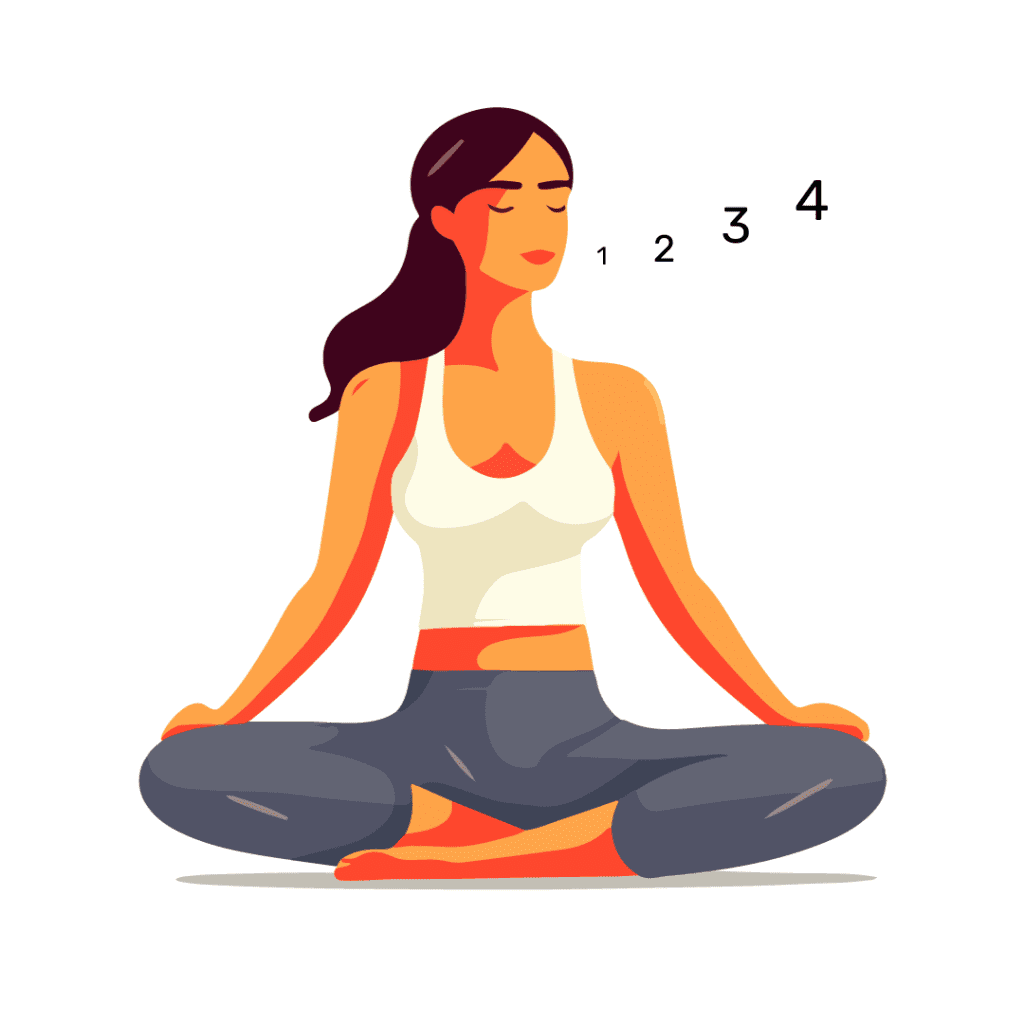
The mind-body connection refers to the intricate relationship between the mental and physical aspects of an individual’s well-being. This concept recognizes that the mind and body are not separate entities but are intricately linked, with each influencing the other. Understanding and nurturing this connection is essential for overall health and well-being.
-
- Emotions and thoughts can have a profound impact on physical health. For example, chronic stress or negative emotions can contribute to physical ailments such as headaches, digestive issues, and even cardiovascular problems.
-
- The body’s response to stress, often referred to as the “fight or flight” response, involves the release of stress hormones like cortisol and adrenaline. Prolonged exposure to stress without adequate relaxation can negatively affect the immune system, leading to increased vulnerability to illness.
-
- Psychosomatic effects occur when psychological factors, such as stress, anxiety, or emotional distress, manifest as physical symptoms. Conditions like tension headaches, irritable bowel syndrome (IBS), and certain skin disorders are examples of psychosomatic connections.
-
- The placebo effect demonstrates the power of the mind in influencing physical health. Believing in the efficacy of a treatment, even if it is inert, can lead to actual improvements in symptoms. This phenomenon highlights the role of mindset in the healing process.
-
- Neurotransmitters, the chemical messengers in the brain, play a crucial role in regulating mood. Serotonin, for example, is associated with feelings of well-being and happiness. Activities that stimulate the release of these neurotransmitters, such as exercise, can enhance mood and mental health.
-
- The mind-body connection is a fundamental principle of holistic health. Holistic approaches consider the interconnectedness of physical, mental, emotional, and spiritual well-being. By addressing each of these aspects, individuals can achieve a more comprehensive state of health.
Final Thoughts
The journey to rediscover yourself is a profound exploration that unfolds in layers, requiring patience, self-compassion, and a commitment to personal growth. As we navigate the complexities of modern life, the imperative to reconnect with our authentic selves becomes increasingly vital.
Through introspection, mindfulness, and intentional actions, we can unravel the layers of identity, unveiling a more genuine and purposeful existence. Embrace the challenges, celebrate the victories, and remember that self-discovery is not a destination but a continuous evolution. In the rediscovery of yourself lies the potential for a more fulfilling and meaningful life—a life aligned with your true essence and aspirations.

